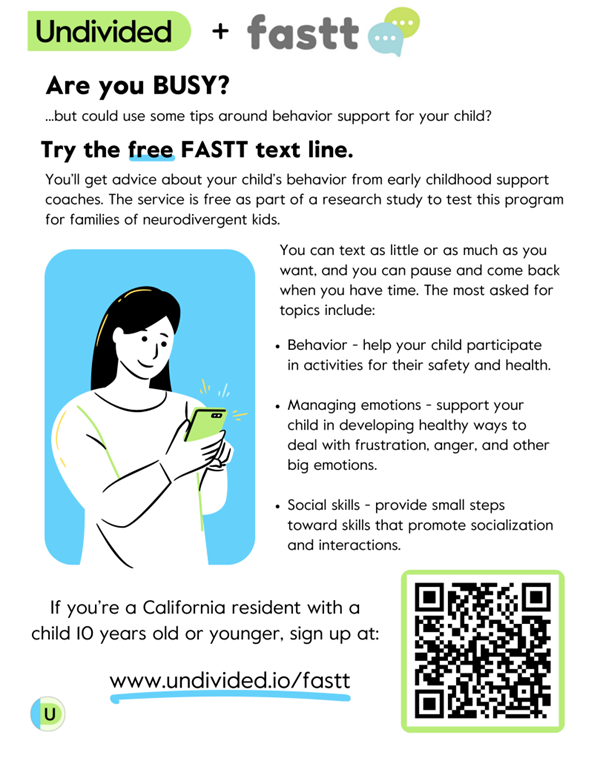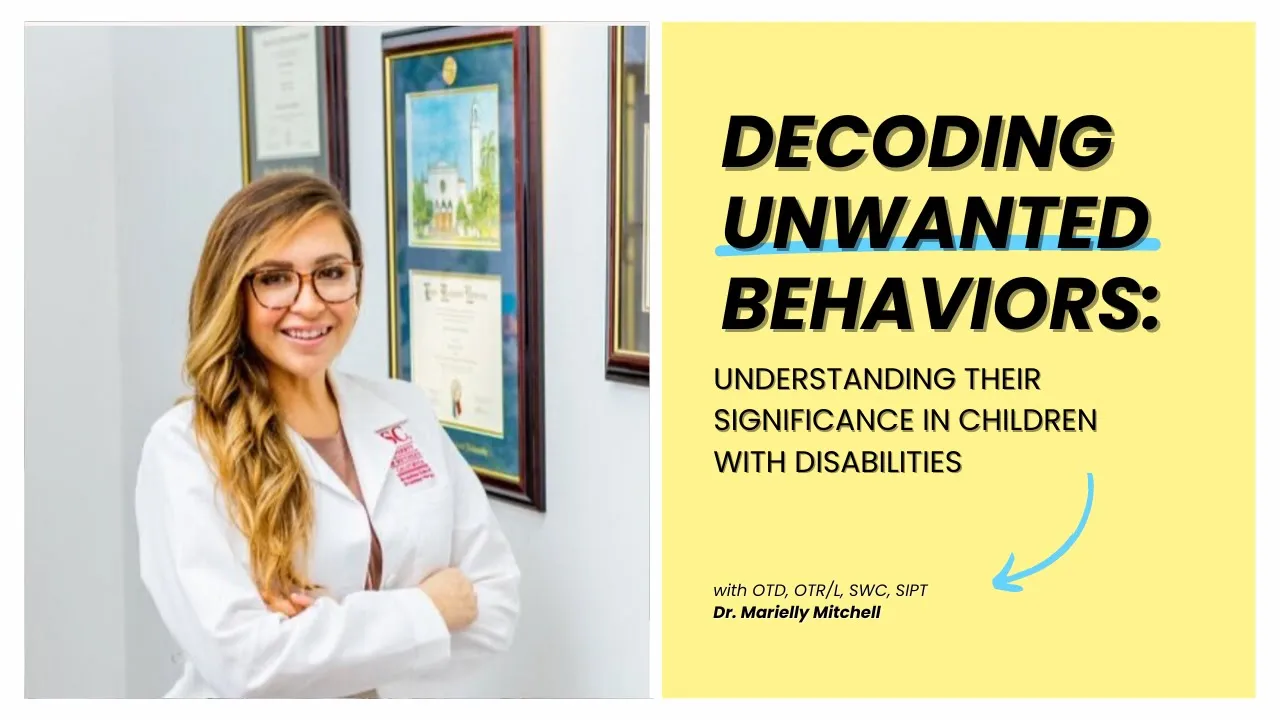Free Behavior Support from FASTT Counselors
In March 2024, we sat down for a virtual Q&A with Dr. Shannon Peake, who talked about the free FASTT support line for parents. Check out the highlights below from our interview with Dr. Peake or watch the full replay here (with transcript available), and sign up here to receive free behavior support from a FASTT counselor.
What is FASTT?
“FASTT stands for Family Advice and Support Text and Telephone line. It's a text and telephone service for families of neurodiverse children to get tips on building skills or behavioral topics for their child," Dr. Peake says.
Why did you start FASTT?
"Parents have other services available to them, like occupational therapy, speech and language, autism specialists, for example. But those are more structured services, something you would make an appointment for, you would go to an office or a clinic, or sometimes they come to your home. We were seeing that parents needed a more flexible way of getting tips and strategies that they could be working on."
Dr. Peake continues, "The other thing I'm hearing from parents is that when they're working on these strategies, sometimes they want to know the answer to something while the behavior is happening, so they can begin trying things right then."
What are the principles of FASTT?
- Strength-based
- "We focus our perspective on the strengths of the child and build on those. We're not looking at what the child can't do. We look to see where the child is at on that skill. That then helps us work with the parent to figure out the steps that are closest to where they're at, and how we can help support them in building the skill."
Child-centered approach
- "We don't just think about behavior and changing behavior. We view behavior as a form of communication. It's a way of understanding what does the child need? What do they want? What is helpful for them in that moment? We we aren't just looking to fix a behavior; we're looking at what's the underlying message that's being sent, and can we address that? That is often more helpful. It sometimes means that we're not changing behavior, we're changing things that might trigger a behavior, or we might think of more acceptable ways for the child to get that need met."
Evidence-based
- "That means programs or approaches that have been tested. They have been run in trials to see that they actually work, not just someone's idea of what might work. And we take that very seriously. Now, that said, not all of those approaches fit with each child or parent. So part of our job is to help find the ones that fit best for that child and that parent."
How does FASTT work? What can parents expect?
Because FASTT is part of a federally funded research study, parents first sign a consent form. Then, they take a 10-15-minute questionnaire about stress and their role as a parent. Once parents start texting the FASTT line, a support specialist will help them with behavior strategies based on the topic they're interested in. Parents can use the text service as often as they want, and they can pause and come back later. Parents will then be asked to complete another questionnaire about using the program. Participants in the study receive two $25 Amazon gift cards, one for the initial survey and one for the post survey.
Dr. Peake says, "The whole idea of this is that it's flexible, that parents can do it when they've got time."
What is texting with a support specialist like?
"We'll ask the parent what they've tried so far and if they have any values around that. Are there particular approaches that you don't want to do? We'll find some parents who are open to any evidence-based approach, and some parents have tried some things and feel like it's not for them and their child and they want to stay away from them. And that is totally fine with us. We can give them strategies that are a better fit."
Dr. Peake continues, "We've heard from parents that having the details in a text is nice because they can go back and refer to it; periodically, they can reread it. So they don't just have to listen to it and remember it. We'll usually check with the parent after we give the details about how they feel about that strategy."
FASTT tries to make sure that parents can speak with the same support specialist each time they text about a topic, so they don't have to start over with a new person.
How do parents participate in FASTT?
Get started by signing up at undivided.io/fastt. You'll receive a link to the consent survey so that you can get started texting a support specialist. FASTT is open to all parents of children under 10 years old in California.
Sign up today to meet your support specialist!
Join for free
Save your favorite resources and access a custom Roadmap.
Get StartedAuthor


















